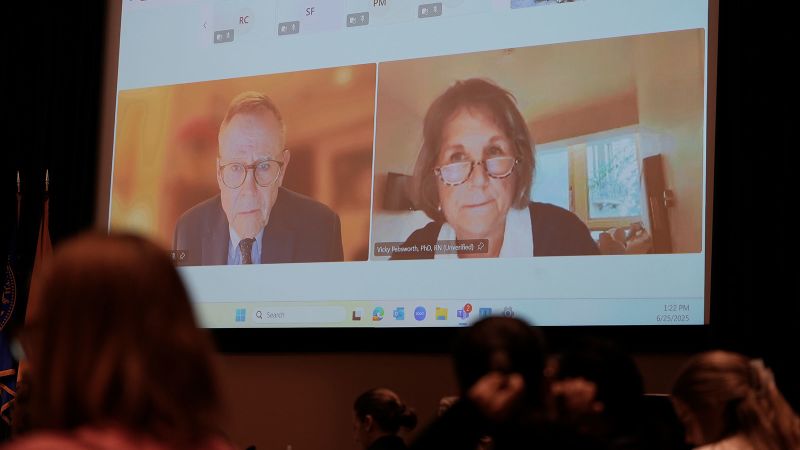In recent developments surrounding vaccination matters in America, a new committee formed under the US Centers for Disease Control and Prevention (CDC) has sparked considerable discussion and concern regarding the future of vaccine regulation and public health policy. Established during a period of transition following the confirmation of Robert F. Kennedy Jr. as head of the US Department of Health and Human Services, the advisory panel is poised to reconsider established vaccination practices and policies that have been in place for decades. These changes have ignited fears that they may undermine public confidence in vaccines and restrict access to essential immunizations.
The newly formed advisory committee concluded its first meeting with decisions that left many public health officials and medical associations alarmed. One significant issue debated was the potential elimination of thimerosal, a mercury-based preservative traditionally used in flu vaccines, despite years of research indicating that its use poses no substantial risk. Critics argue that this could severely limit access to flu vaccines, especially for vulnerable populations, revealing a significant divergence from long-established scientific consensus.
The influence of Kennedy, known for his skepticism towards vaccines, loomed large over the committee’s proceedings. His abrupt decision to replace all previous members with his own nominees, many of whom had publicly questioned vaccine safety, led to widespread apprehension about the committee’s direction. During congressional hearings, questions about the advisory panel’s expertise arose, prompting calls from Senator Bill Cassidy and others to delay meetings until more qualified members could be appointed. These transitions resulted in meetings characterized by technical difficulties and contentious exchanges, where established scientific norms were openly challenged.
Dr. Sean O’Leary, a pediatrician and liaison member to the CDC Advisory Committee on Immunization Practices, criticized the meeting, suggesting that it was orchestrated to spread distrust in vaccines. O’Leary pointed to reckless decision-making driven by pseudoscience, posing risks not just to individual health, but to public health at large. This sentiment echoed across the medical community, where experts voiced concern over the credibility of scientific discussions within this newly formed advisory group.
Among the topics discussed during the meeting were the safety and efficacy of thimerosal and the risk of febrile seizures associated with combination vaccines. Thimerosal was notably featured in a presentation by Lyn Redwood, a registered nurse and activist linked to Children’s Health Defense, without the usual vetting by disease experts, leading to accusations of bias and misinformation. Critics expressed that this deviation from established protocols set a dangerous precedent for future vaccine recommendations.
In a significant turn, the committee aligned on advocating for the RSV (respiratory syncytial virus) immunization, which had previously been validated through rigorous clinical trials. Making strides toward providing free vaccinations to needy children, they also reaffirmed guidelines for the annual flu vaccine for all individuals over six months. However, these recommendations remain subject to finalization by the CDC director, whose confirmation process has yet to conclude.
Despite being surrounded by controversy, the committee members maintain their commitment to the public health mandate. In a statement, they articulated their resolve to promote confidence in scientifically backed vaccination processes while assuring that they will not proceed with votes lacking sufficient evidence for risk-benefit evaluations. This commitment puts them at odds with influential medical associations, such as the American Academy of Pediatrics, which have signified their withdrawal from the ACIP meetings and indicated their intention to release their own vaccination schedules.
Throughout the meeting, the new members demonstrated an apparent lack of understanding regarding critical vaccine-related methodologies, leading to skepticism about their competence in dealing with public health matters. Several experts criticized this lack of familiarity with essential scientific principles and evidence, underscoring a need to foster better educational foundations among committee members.
As this pivotal period unfolds, the implications of the first advisory meeting reverberate through the medical community, revealing a potential shift in vaccination practices and policies that could have dire consequences for public health. The commitment to uphold scientific rigor, alongside the deepening divide in vaccine discourse, underlines a critical moment in America’s vaccination landscape, raising questions that warrant careful scrutiny as the advisory committee takes shape and moves forward in its decision-making processes. The reception to these changes remains to be seen, with ongoing monitoring required to ensure public health safety and integrity in vaccine access and quality.












